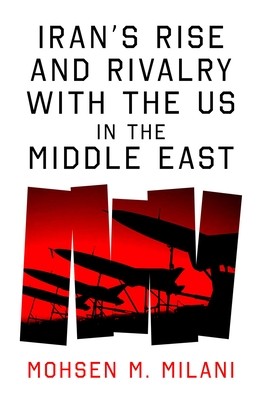
- We will send in 10–14 business days.
- Author: Mohsen M Milani
- Publisher: Oneworld Publications
- ISBN-10: 0861548426
- ISBN-13: 9780861548422
- Format: 15.5 x 24.4 x 3.8 cm, kieti viršeliai
- Language: English
- SAVE -10% with code: EXTRA
Reviews
Description
In recent decades, the Islamic Republic of Iran has poured roughly $50bn into foreign interventions. Despite facing sanctions on par with North Korea and being an international pariah, Iran has created its own sphere of influence. The future of Iraq, Lebanon, Syria and Yemen is intertwined with the fate of the Islamic Republic. What spurred Iran's rise - and what are its motivations now? Mohsen Milani makes the case that Iran is guided by two principles: power and deterrence. The Iran-Iraq war provided Iran the impetus to build its own military-industrial complex, while its funding, training and arming of Hezbollah - the only army not to lose against Israel - acts as a warning for anyone with designs on Iran's territory. But power has a price. As domestic unrest rises, Iran simply cannot afford its attempts at regional dominance any longer.
EXTRA 10 % discount with code: EXTRA
The promotion ends in 24d.02:38:09
The discount code is valid when purchasing from 10 €. Discounts do not stack.
- Author: Mohsen M Milani
- Publisher: Oneworld Publications
- ISBN-10: 0861548426
- ISBN-13: 9780861548422
- Format: 15.5 x 24.4 x 3.8 cm, kieti viršeliai
- Language: English English
In recent decades, the Islamic Republic of Iran has poured roughly $50bn into foreign interventions. Despite facing sanctions on par with North Korea and being an international pariah, Iran has created its own sphere of influence. The future of Iraq, Lebanon, Syria and Yemen is intertwined with the fate of the Islamic Republic. What spurred Iran's rise - and what are its motivations now? Mohsen Milani makes the case that Iran is guided by two principles: power and deterrence. The Iran-Iraq war provided Iran the impetus to build its own military-industrial complex, while its funding, training and arming of Hezbollah - the only army not to lose against Israel - acts as a warning for anyone with designs on Iran's territory. But power has a price. As domestic unrest rises, Iran simply cannot afford its attempts at regional dominance any longer.


Reviews